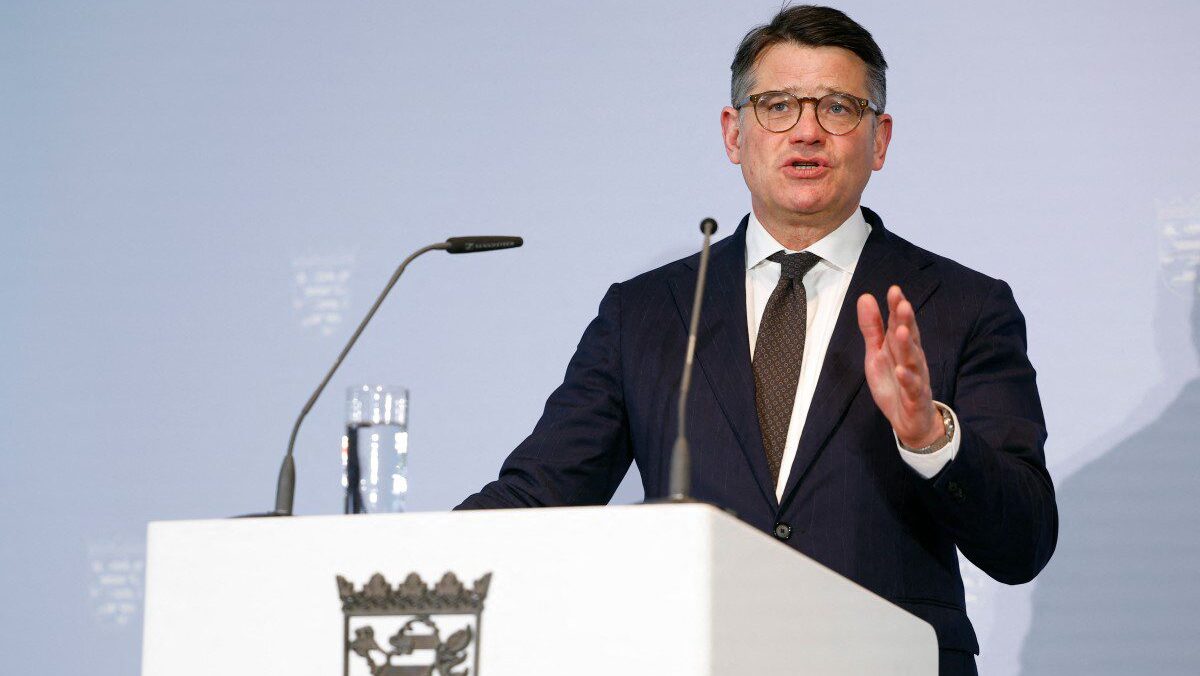
Hesse’s State Premier Boris Rhein
Photo: Odd ANDERSEN / AFP
Left-liberals in Germany suffered a setback in their mission to lay the linguistic groundwork to create a genderless world last week when Hesse Minister-President Boris Rhein (CDU), following the footsteps of his Bavarian counterpart, banned the use of gender-neutral language in the state’s administration.
The move, which predictably has incensed members of the Green party, is the result of a coalition agreement between the CDU and SPD where the two parties agreed that “public administration and other state and public institutions (such as schools, universities, broadcasting) are to refrain from gendering with special characters” like colons, underscores (gender gap), or asterisks (gender star) to identify multi-gender designations.
For the uninitiated masses unfamiliar with German ‘gender-inclusive’ language, both the ‘gender star,’ ‘gender gap,’ and colon can be used to create what advocates of this type of language call ‘gender-inclusive’ variants of nouns. For example, the ‘gender star’ can be used to turn nouns Freund (male friend) and Freudin (female friend) into Freund*in (friend, including male, female, and transgender or non-binary).
In a letter explaining the decree to his eight ministers, Minister President Rhein, who after ruling alongside the Greens for a decade expelled the party from the coalition last November over ideological differences, wrote that the use of gender-neutral language in Hesse is to be prohibited “according to the wishes of the government.”
“Official correspondence and all other official announcements from the state administration should exclusively follow the official rules of the Council for German Spelling,” the state executive informed the public.
Elaborating on the decision, the Hessen State Chancellor wrote that a “citizen-oriented administration also requires a uniform and understandable language.”
Miriam Dahlke, the parliamentary managing director for the Green parliamentary group in the Hessen Landtag, nearly had an emotional meltdown upon learning of the State Chancellery’s decision.
“We wonder whether Boris Rhein will next ban the SPD ministries from hoisting the rainbow flag on certain occasions,” she wrote, adding that Rhein “will not be able to prohibit a diverse society.”
Rhein’s decision comes after the Council for German Orthography (RdR), the official body for the regulation of the German language, in December of last year again voiced opposition to the inclusion of special gender characters in the official German spelling rules, highlighting that doing so involved inappropriate “fundamental interventions in word formation, grammar, and orthography.”
Bavaria, under the leadership of Minister-President Markus Söder (CSU), late last month became the first of the 16 federal states to implement a blanket ban on the use of gender-neutral language across the state’s administration, schools, and universities. The German Teachers’ Association has welcomed the ban, while the Federal Student Conference, an official student body advocating for student involvement in the school system condemned the decree, describing it as “paternalism.”
The Conference’s Secretary General, Florian Fabricius, claimed the regulations restrict student autonomy. “We are against this paternalism, this applies to both gendering and non-gendering,” he said.
